The Great Rocket-Post Experiment
by Tom Doran
In the early days of rocket research, experimentation and dreams of a glorious, scientific future, some people thought that rockets and the respective technology could solve a whole plethora of what were common, every day problems. Not only could rockets be used for warfare, and space travel and research, but some folks thought that rockets could even deliver the mail.
In those heady days of early industrial endeavors, any thing at all was possible to achieve through hard work and technology - and while in essence that is true, the applications of such science wasn't always thought through clearly. Sometimes, tried and true solutions were best.
But as with the development of the automobile and airplanes, everything suddenly sped up - our ability to travel being one of them. The faster that everything now went, the more profit and the greater benefit to mankind was the mantra of the day - dangerous, physically laborious jobs would soon be replaced by robotics, machinery, and other applied technologies.
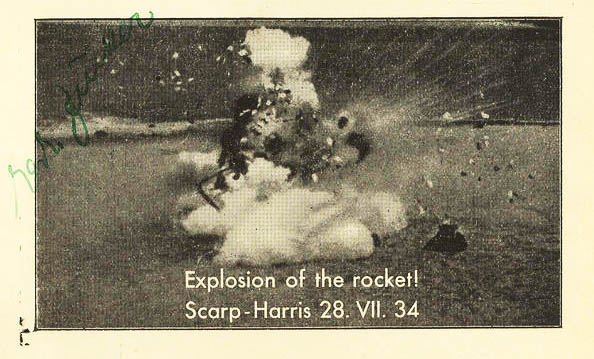
In Scotland, there are many remote communities, especially in the Western Isles, Orkneys and Shetlands. Many of which are only accessible via boat (but more recently by new bridges and the occasional small airfield. The inhabitants of these rural outposts were quite used to a slower pace of life, if not indeed relish it. And getting regular mail delivery in the 1930's, was an on and off thing during bad weather when crossing over from the mainland to the isles and on to other isles. Local, skilled boat pilots knew when one could cross, or not - and it could be days before they might venture out.
Into this environment strode a German rocket engineer, Gerhard Zucker. An entrepreneur, businessman, and a wildly over-confident (and perhaps delusional) man, he followed in the burgeoning steps surrounding the delivering of mail by rocket. He tried with little success in his homeland (where many of his experiments with were with black-powder rockets - not the safest of ideas. , and then decided he might be better off in Great Britain - politically, and business-wise. Besides there were numerous island communities which would benefit from his (somewhat ill-thought out) new ideas for delivering the mail.
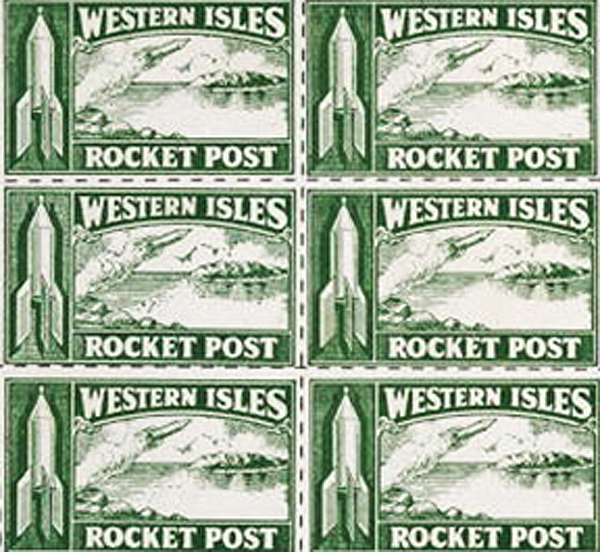
He did an experiment in southern England - which ended in relative failure, but was allowed by the Royal Mail to try again - and with a seasoned salesman's pitch, he headed to Scotland and the Isle of Lewis and Harris and then to the small island of Scarp. Apparently there was a news report of a pregnant woman on Scarp who had difficulty getting news out of Scarp to a doctor on Harris (there were no physicians on Scarp). She was expecting twins and while she gave birth to one, the other was causing some issues. Finally she was able to get off of Scarp and amazingly enough gave birth to her second child in a Lewis hospital (two days later it is reported).
To Zucker, this seemed like just the kind of thing that would have benefited from his rocket (getting word out quickly, not launching a pregnant woman from one island to another). He set sail with rockets and press in tow.
On a July day in 1934, the locals of Scarp, a bit enthralled and a bit bemused at all of this, had helped by adding letters of their own, to a soon amassed volume of over 1,200 letters from various regions of Scotland - all marked with specially-made Rocket Post stamps. They were loaded into the rockets. The crowd stood nearby, cameras clicking by reporters, and the BBC even had a film camera rolling - just in time to watch the rocket explode seconds after ignition. The deafening roar echoed out across the waters and countryside, as some flaming remnants and letters fluttered to the ground.
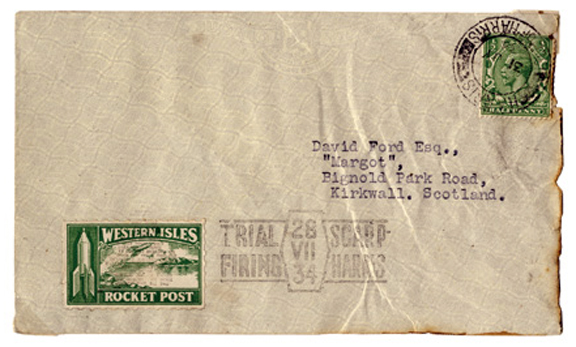
Zucker, severely disappointed but hardly deterred, had a back-up rocket and a couple of days later he was ready to try again - some letters that were not sent were packed in - along with a few survivors of the previous launch. Again - people held their breath and probably their ears - the ignition was started, and once again, the would-be postal rocket exploded in flames and twisted metals. Burning letters fluttered down yet again (a very few still exist to this day, though singed).
The government officials had had quite enough demonstrations. They knew this was not only not a very practical idea (no one really considered how the rocket might safely land - or exactly where (a more disturbing thought). The German was promptly booted from the UK, and then arrested by the Nazi government, wondering if Zucker had been actually conspiring with the British, and using the postal rockets as a cover. He was released and served with the Luftwaffe during World War II. After the war he lived in West Germany, sold furniture to make ends meet - but still, madly optimistically, kept experimenting with rockets - until one day in 1964 one of his rockets exploded, killing 3 people. The German government then banned all civilian research and experimentation with rockets, making it the province of government oversight.
Still Zucker tinkered on until his death. And while his great experiment failed spectacularly, other countries did their own trials - until technology, jet planes, near-space rockets ended all need for small, personal mail rockets (if ever the need really existed).
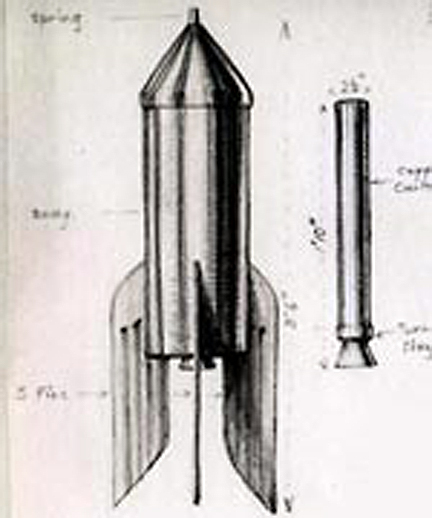
rocket post diagram
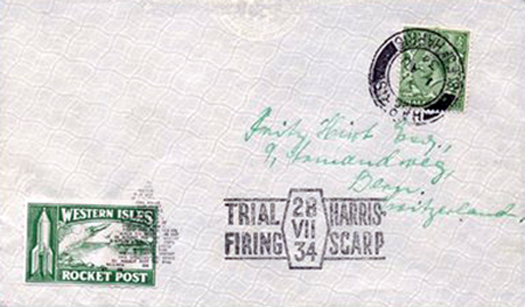
rocket post letter
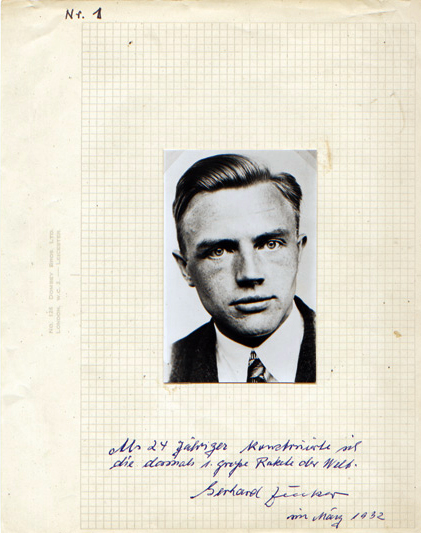
Zucker
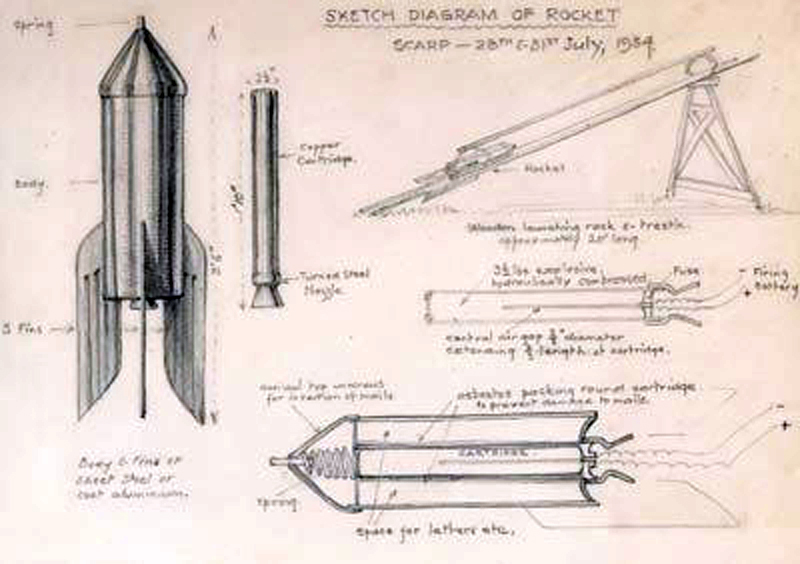
Congratulation to Haley Hewitt, the New Scottish Harp Champion of America!
The Scotia News wishes to convey its congratulations to Miss Haley Hewitt the 2013 National Scottish Harp Champion. Miss Hewitt who won the contest held on Sept 21 in Lingonier PA hails from Burklington CT.
The competition is hosted by the Scottish Harp Society of America of which Clan Currie is the Title Sponsor.
TABLE OF CONTENTS
PAGE TWO